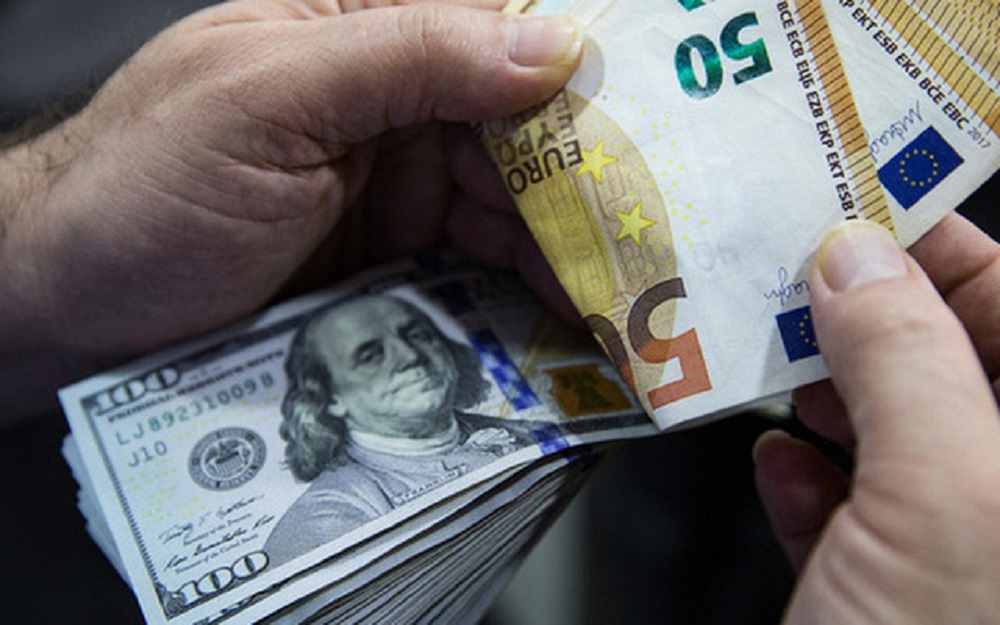How will major currencies move after central banks meetings?
The last week’s Fed, ECB and BoE meetings have been notable for the slightly more dovish, or hopeful comments from bank leaders.

Euro/dollar could rise to around 1.15 this year, in the Standard Bank's view
Given that the ECB has been seen as the most hawkish of the three central banks, it is not too surprising that the euro slipped back, at least against the dollar. If the market senses that the interest rate differential between US and euro zone policy rates does not close up as much as previously anticipated there could be some pressure on the euro.
However, what’s far more important in Mr. Steve Barrow, Head of Standard Bank G10 Strategy’s view is the message central bank policies and statements give to asset prices in general; not the impact on interest rate differentials. In other words, it might be the case that the rate differential between the US and euro zone does not close as much as previously expected, but as long as policymakers are telling a story that chimes with the idea of stronger stock and bond prices, the dollar is likely to fall against the euro, not rise.
“Our call is for euro/dollar to rise to around 1.15 this year and, in fact, we’re thinking that this may be too conservative even though it is at the top end of analysts’ forecasts. In our view, 1.20-plus is growing more feasible. We base this view largely on a continued, if bumpy, recovery in asset prices. Key to this story is that the market continues to anticipate that inflation is largely beaten and that central banks can start to cut rates. The Fed is the most important player because its monetary policy drives the global financial cycle, aided by movements in the dollar. When the financial cycle turns easier because the market anticipates an end of the tightening cycle and the start of the easing cycle, asset prices usually rise”, said Mr. Steve Barrow.
The US dollar often falls in the said scenario because the market puts a smaller premium on safe assets such as the dollar. It does not matter that the US’s interest rate differential with other countries becomes less supportive of dollar strength. All that matters is that the financial cycle is easing and asset prices are rising. Hence, in the current situation, euro/dollar could be stronger even if the monetary decisions and ‘promises’ by bank heads last week mean that the policy rate differential between the US and the euro zone might not narrow as much as previously anticipated.
On the contrary, any creeping ECB dovishness that bolsters the Fed’s actions in easing the financial cycle is likely to make the euro stronger against the dollar, not weaker. But even if the ECB does not play ball, and retains a very hawkish outlook for policy, we’d still expect euro/dollar to rise as long as Fed policy and expectations of future Fed policy are easing the global financial cycle.
>> What about the monetary policy targets of some central banks?
In Mr. Steve Barrow’s view, the market often gets things wrong by focussing on rate differentials over the financial cycle. “We can see this in the fact that the dollar can fail to rally if the Fed tightens policy relative to others but does not create asset price weakness in the process. We saw this in the 2015-18 Fed tightening cycle when the Fed was just about the only advanced-country central bank to lift rates, but the dollar did not rally. Another point, as we’ve said before, is that the dollar usually rallies the most when US rates are being slashed, very often with interest rate differentials weakening in the process. This happens in crisis situations like the pandemic when the Fed slashes rates but the dollar rallies hard given its safe-asset allure”, said Mr. Steve Barrow.
So, we can see from these examples that focus on interest rate differentials can lead the market in the wrong direction when it comes to currencies. Right now, this means that the euro’s prospects against the dollar are probably brighter, the more the ECB opens up its dovish side and contributes to a more significant easing of global financial conditions.








